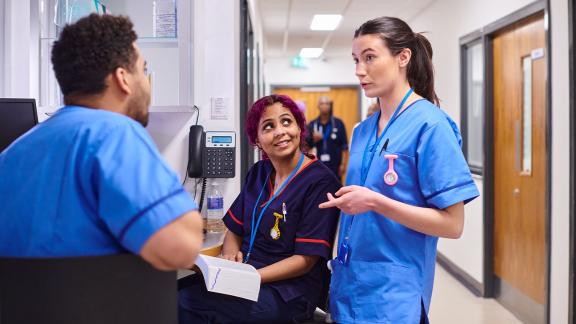Implementing a wellbeing culture: supporting NHS staff to stay well

In this webinar Oxleas NHS Foundation Trust and University Hospitals Birmingham NHS Foundation Trust share their strategies for fostering a culture of staff wellbeing across the two organisations.
The webinar provided health and wellbeing leads, staff experience leads, and senior leaders with practical insights on how to create a culture of wellbeing and improve staff experience in NHS organisations.
Health and wellbeing scores in the NHS Staff Survey 2024 remained broadly stable compared to 2023, with persistent challenges such as burnout and presenteeism.
The presentations highlighted that continued investment in staff wellbeing is essential to improving staff experience, supporting retention and making the NHS People Promise a reality.
Masood Aga, director of occupational health and wellbeing, and Lily Anstey deputy, chief people officer, at University Hospitals Birmingham NHS Foundation Trust, shared more on the holistic approach they have taken to improve staff experience.
Emma Winter, wellbeing and retention lead, and Kim Gilbey, associate director of people at Oxleas NHS Foundation Trust, showcased the work their trust has done to maintain high health and wellbeing scores in the NHS Staff Survey. During the webinar, we had lots of questions which we Oxleas have kindly answered, we have put them into themes below.
Health and wellbeing champions
Staff survey, reasonable adjustments and budget
Communication and engagement
Health and wellbeing initiatives
Download the presentations from Oxleas NHS Foundation Trust and University Hospitals Birmingham NHS Foundation Trust.
Find out more about the health and wellbeing programme and how to join the network.



